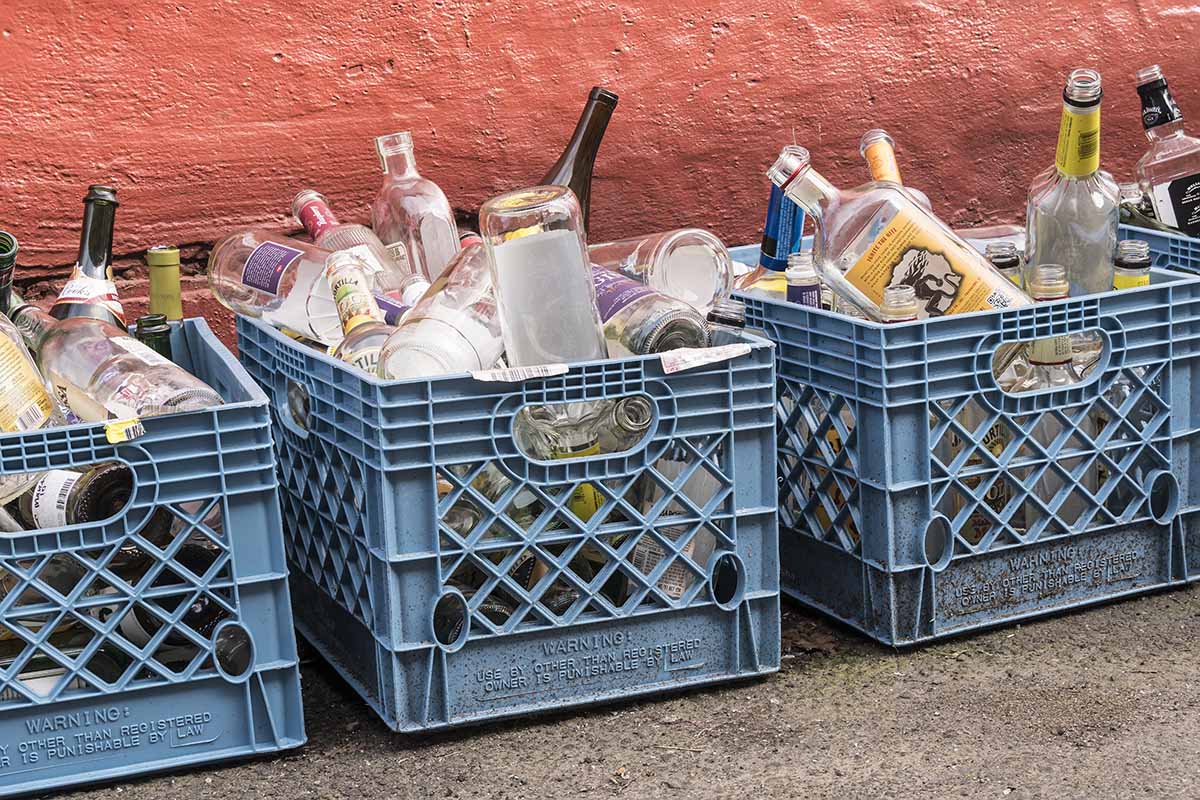
Grant funds that were made available by the Inflation Reduction Act have been subject to reconsideration under the Trump Administration. | Michael Warwick/Shutterstock
Cullet end users Gallo Glass and O-I were among the Department of Energy grant funding recipients who had their awards canceled last month, including one for a project that would directly expand recycled glass capacity. An industry group criticized the funding cuts.
Gallo Glass last year was awarded up to $75 million in grant funds to install a hybrid electric glass furnace. The furnace would reduce energy use and also allow the company to increase recycled content in its glass bottles by 30%, according to a project announcement.
Concurrent with the furnace install, Gallo noted the project would involve establishing new recycled glass collection programs to bring in containers that are part of the California deposit system.
But on May 30, the DOE announced that 24 awards to clean energy-related projects that were issued by the Biden Administration have been terminated. The list, which DOE provided to Resource Recycling, includes the Gallo award.
In a statement, Secretary of Energy Chris Wright alleged the previous administration “failed to conduct a thorough financial review before signing away billions of taxpayer dollars” for the awards. Wright added that under the Trump Administration, rather than carbon capture and decarbonization projects, the department would direct funding to “strengthen our national security, bolster affordable, reliable energy sources and advance projects that generate the highest possible return on investment.”
The list of canceled awards also includes $57 million to O-I for a furnace rebuild in Zanesville, Ohio, which was part of a larger series of furnace rebuilds O-I planned in multiple states. In a statement to Resource Recycling, an O-I spokesperson acknowledged the termination and said it was a disappointing development.
“While the DOE’s decision cites a shift in policy priorities and a reassessment of emissions accounting methodology, we believe the project remains aligned with the broader goals of strengthening domestic manufacturing, making American made products more competitive and sustainable,” the statement added. “O-I Glass is reviewing the termination notice and evaluating all available options before the company due to this reversal.”
The Glass Packaging Institute sharply criticized the department’s decision, with President Scott DeFife saying in a statement that it’s “unacceptable to see vetted projects that advance American manufacturing competitiveness cut.”
“The Department’s decision to cut funding from our sector while continuing to support others creates a clear disparity that must be addressed if the Administration is serious about supporting balanced, domestic, long-term industrial progress,” he added.
Concurrent with its criticism of the funding cut, GPI also issued a policy brief laying out how supporting the domestic glass manufacturing and recycling industries aligns with President Trump’s stated policy positions. The policy brief calls for “targeted trade and tariff policies” that prevent unfair foreign competition, recycled glass collection improvements, funding for research and development and support for infrastructure advancements.
“President Trump has long championed American industry, recognizing its vital role in job creation, economic growth, and national security,” the group wrote. “The U.S. glass container industry stands as a pillar of American manufacturing, providing essential packaging solutions across multiple sectors, including food, beverage, pharmaceuticals, and personal care. By bolstering domestic glass container production and improving upon recycling systems, the U.S. can enhance economic stability, secure supply chains, and reduce reliance on foreign materials.”
Outside of the glass space, the DOE funding cuts included terminating a $375 million award to Eastman for a massive chemical recycling project in Texas.